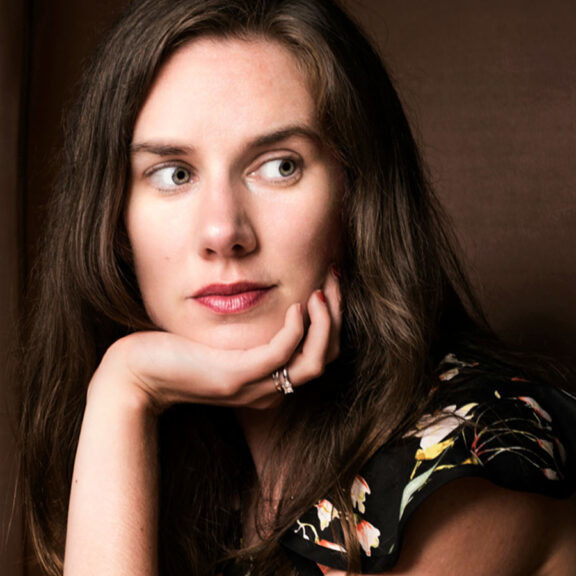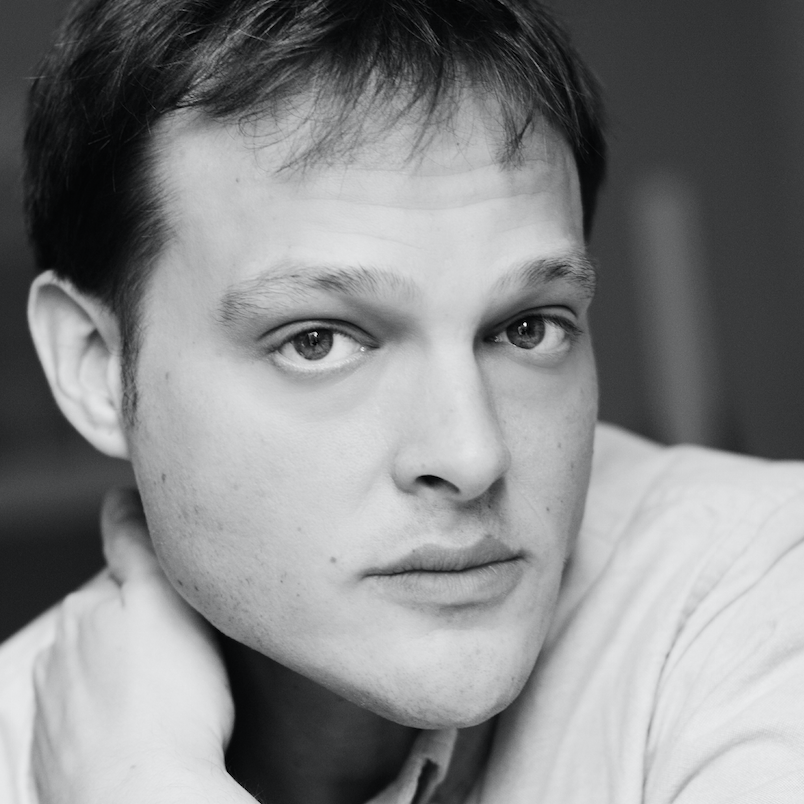Leslie Jamison In Astra magazine, Leslie Jamison writes about daydreams: “I’ve spent my whole life daydreaming. It embarrasses me to think of tallying the hours. It feels like ingratitude. It feels like infidelity. It’s often been about infidelity.” It’s the publication’s first issue, with stories by Catherine Lacey, Fernanda Melchor, Ottessa Moshfegh, and more. At n+1, Judith Levine reports from a labor rally at an Amazon warehouse in Staten Island: “The brisk air vibrated with militant rank-and-file socialist unionism.” For “24 Twitter Moments We Treasure: Sure, it’s hell. But what about the magic?” in Intelligencer, writers round up the best
Ruth Ozeki The six shortlisted novels for this year’s Women’s Prize for Fiction are Maggie Shipstead’s Great Circle, Meg Mason’s Sorrow and Bliss, Ruth Ozeki’s The Book of Form and Emptiness, Lisa Allen-Agostini’s The Bread the Devil Knead, Elif Shafak’s The Island of Missing Trees, and Louise Erdrich’s The Sentence. Poets Writers announced yesterday that Sonia Sanchez—author of Homegirls and Handgrenades, I’ve Been a Woman, and many other collections—is the 2022 Jackson Poetry Prize recipient. Sanchez was chosen by the poet-judges Mary Jo Bang, Marilyn Chin, and Claudia Rankine, who wrote in their citation: “Her vast and commanding oeuvre
Jedediah Britton-Purdy Yesterday, Twitter accepted a bid worth about $44 billion from Elon Musk to buy Twitter. Musk intends to take the company private and plans to institute changes including loosening rules around speech on the platform, making the algorithm open source, and “authenticat[ing] all humans.” In GQ, Chris Stokel-Walker looks at what these changes could mean. At Slate, Alex Kirshner points out, “I do not think Musk thought this through. He only has stressful, annoying, and expensive paths ahead of him.” The winners of the Los Angeles Times Book Prizes have been announced. You can watch the ceremony
Ada Calhoun. Photo: Jutharat Pinyodoonyachet At The Nation, Kyle Paoletta considers the history of the New York Times Book Review and ponders its future. Now that editor Pamela Paul has moved to the paper’s op-ed desk, questions linger about what direction the Book Review will take: “Will the Times recommit to recommendations and reviews that double as ready-made blurbs in an effort to win over an audience that might not actually be interested in reading about books?” Paoletta asks. “Or will it publish the kind of criticism that appeals to readers who don’t require an approaching book club deadline
Mieko Kawakami At the Financial Times, Grace Cook talks with Torrey Peters, Mieko Kawakami, Megan Nolan, Hafsa Zayyan, and Brenda Navarro about the spaces where they write. Navarro can write anywhere as long as she has solitude and headphones, and told Cook, “Writer’s block is a thing for men with time.” For the New Yorker, Naaman Zhou writes about a Twitter account that documents second mentions, or elegant variations, in writing. For example, an article in The Guardian once described a fox who interrupted a soccer game by running onto the field as “the four-legged interloper.” Zhou notes that
Eileen Myles. Photo: Shae Detar In the Culture issue of T: The New York Times Style Magazine, Nancy Coleman, Kate Guadagnino, Thessaly La Force, M. H. Miller, Mallika Rao, and others interview artists and writers about their process. Among the many interviewees are Don Mee Choi, Brontez Purnell, Kevin Young, Eileen Myles, and Ayana Mathis. For The Nation, Kyle Paoletta looks at the past and future of the New York Times Book Review, as it looks for a new editor following the departure of Pamela Paul, who has become an opinion columnist. Paoletta writes, “With no successor yet announced, the
Garth Greenwell. Photo: Macmillan In BOMB magazine, a conversation between Madelaine Lucas and Jessica Au, whose new novel, Cold Enough for Snow, has won the Novel Prize. Au tells Lucas, “I often think that to really answer a serious question, I would have to write a novel to explain why I think the way I think, or what’s formed me. . . . You would need so much context and backstory to fully have another consciousness recognize your own.” In “Eric Adams’s Moral Panics,” Kay Gabriel writes for Jewish Currents about the New York City mayor’s approach to crime
Elif Batuman. Photo: Valentyn Kuzan. Jennifer Wilson reviews Elif Batuman’s second novel, Either/Or, for The Atlantic. A sequel to The Idiot, Either/Or follows Selin, now a literature major at Harvard, in her pursuit of the aesthetic life. While collecting experiences she plans to use as material for a novel, Selin ponders the “ethics of being an autobiographical-writer-in-the-making.” Wilson notes that “the simplicity of the experience-for-art’s-sake mantra is itself a clue that the cerebral Selin will soon grow suspicious of it.” On April 13, Bennington College hosted an in-person event titled “How to Be an Art Monster.” Moderated by author
Kathryn Schulz. Photo: Michael Polito. At the New York Times, Alexandra Alter profiles the iconoclastic, dystopian Russian novelist Vladimir Sorokin, as American publishers plan to publish eight new translations of his books. “The attention comes as his portraits of Russia as a decaying former empire that’s sliding backward under a militaristic, violent and repressive regime have come to seem tragically prescient,” Alter writes. “As Russia carries out its brutal invasion of Ukraine, Sorokin sees the conflict not just as a military onslaught, but as a semantic war being waged through propaganda and lies—an assault on truth that writers must
Elisa Gabbert. Photo: Adrianne Mathiowetz The New York Public Library has announced the finalists for the 2022 Young Lions Fiction Award. The New York Times Book Review has dedicated an issue to poetry for National Poetry Month: Elisa Gabbert writes about the difficulty of defining exactly what makes a poem, Stephanie Burt reviews Linda Gregerson, Daisy Fried revisits the work of Nelly Sachs, and more. The deadline for the FSG Writer’s Fellowship has been extended until April 22. The program offers support to writers from underrepresented communities including mentorship and ta $15,000 award. The judges this year are Sheila
Jennifer Egan. Photo: Pieter M. Van Hattem. Elon Musk has launched a $43-billion-dollar cash bid to buy Twitter. Bloomberg reports: “Unsatisfied with the influence that comes with being Twitter’s largest investor, he has now launched a full takeover, one of the few individuals who can afford it outright.” In The Nation, professor Victor Pickard writes about why it’s a bad idea for billionaires to have control over social-media platforms, which have become de facto public utilities. The BuzzFeed News union has announced that it has tentatively agreed to a contract after two years of bargaining. In the Los
Alexandra Chang. Photo: Alana Davis The National Book Foundation has announced its 2022 “5 Under 35,” the award for young authors to watch. At Vulture, Hillary Kelly discusses the nominees. The Los Angeles Times Festival of Books is back this year with indoor and outdoor author events at the University of Southern California during the weekend of April 23–24. General admission tickets for talks with Joy Williams, Jonathan Lethem, Clint Smith, Imani Perry, Melissa Febos, and more will be available starting April 17. At GQ, Gabriella Paiella interviews Adrien Chiles, “the internet’s most delightful columnist,” who is known for
Nina MacLaughlin. Photo: Kelly Davidson Nina MacLaughlin, the author most recently of Wake, Siren: Ovid Resung, is working on a project writing short fictions based on the sculptor Richard Serra’s 1967 list of verbs and concepts. Online at n+1, you can read an excerpt comprising three sections: “To Dapple,” “To Remove,” and “To Store.” In the new issue of the New Yorker, comic artist Joe Sacco illustrates a story by Russian graphic artist Victoria Lomasko. In the opening panel, Sacco explains that Lomasko had to flee Moscow and leave her art supplies behind. In their collaboration, “The Collective Shame
Ocean Vuong. Photo: Tom Hines Peter Maass, the author of Love Thy Neighbor: A Story of War, writes about Ron Haviv’s photographs of a Kyiv suburb, which depict cars, bicycles, strollers, and other objects abandoned by Ukrainians desperately trying to flee the war. “These photos tell us the beginnings of stories that we dread following to their ends. There is a cane on the ground—what happened to its owner? Were they scooped up by a relative who realized their grandmother or grandfather was moving too slowly to survive the bombs? Did they fall by the roadside, alone? Their body,
Hernan Diaz. Photo: Pascal Perich The new class of Guggenheim Fellows has been announced. The 2022 fellows in fiction and nonfiction include Jennifer Croft, Alexandra Kleeman, Hernan Diaz, Brandon Hobson, Maaza Mengiste, Christopher Sorrentino, and Melissa Febos, among others. At Gawker, Erin Somers notes an uptick in critics’ use of the German term “Künstlerroman.” Somers first noticed the word in Hermione Hoby’s Bookforum review of Sean Thor Conroe’s novel Fuccboi, and has since endeavored to find the source of what seems to be a trend. According to Somers, that credit goes to Sam Lipsyte, who reminded her never to
Olga Tokarczuk. Photo: © Lukasz Giza. The International Booker Prize shortlist has been announced. The six nominees include Olga Tokarczuk and translator Jennifer Croft, who won the award in 2018 for Flights. The winner will be announced on May 26. For Vulture, Jasmine Sanders profiles Margo Jefferson, the author of the new memoir Constructing a Nervous System. Sanders writes, “As a reader, I find Jefferson most enrapturing when . . . she bins her gentility for something sharper. Tending her envy, tallying slights both personal and historical, indulging her gloomier moods: the well-comported girl no more.” New York Times
Rabih Alameddine. Photo: Benito Ordonez The PEN World Voices Festival will hold an emergency summit in May in response to the war in Ukraine. More than one hundred writers will gather, and the Ukrainian novelist Andrey Kurkov will deliver a speech “that will address threats to democracy and free expression.” Rabih Alameddine has won this year’s PEN/Faulkner Award for Fiction for his novel The Wrong End of the Telescope, which follows a transgender doctor working in Lesbos at a camp for Syrian refugees. “In a year of stunning and important fiction,” judges Eugenia Kim, Rebecca Makkai, and Rion Amilcar
Chloé Cooper Jones. Photo: Andrew-Grossardt Twitter CEO Parag Agrawal has announced that Elon Musk is joining the board of the social-media giant. Musk began his tenure with a Twitter poll asking if users want an “edit” function, which garnered an overwhelming response. Chloé Cooper Jones talks about her new memoir, Easy Beauty: “There is this idea from the philosopher and novelist Iris Murdoch that I use very explicitly in my narrative but then also implicitly, in the structure and craft of the book. Put simply: Iris Murdoch argued that we can only perceive things based on the way that
Roxane Gay. Photo: Jay Grabiec Roxane Gay has announced the first three books that will be published by her new Grove Atlantic imprint: And Then He Sang a Lullaby, the debut novel from twenty-three-year-old Nigerian writer and activist Ani Kayode Somtochukwu; J. V. Lyon’s novel Lush Lives; and Hot Springs Drive, a novel from Lindsay Hunter, the author of Ugly Girls and Eat Only When You’re Hungry. Larua Miller writes about Mick Herron’s “hilarious, unique” spy novels, which are the inspiration for the new TV series Slow Horses, starring Gary Oldman, Kristin Scott Thomas, and Jonathan Pryce. “If James
Richard Howard. Photo: New York Institute for the Humanities Richard Howard, former poet laureate of New York, essayist, and translator of Roland Barthes, Alain Robbe-Grillet, Charles Baudelaire, Simone de Beauvoir, and many other French writers, died on Thursday at the age of ninety-two. His 1969 collection, Untitled Subjects, which presents dramatic monologues given by fifteen Victorians and Edwardians, won the 1970 Pulitzer Prize in Poetry. As the editor of George Braziller’s publishing house’s poetry series, he championed younger poets including Charles Simic and Frank Bidart; he was also poetry editor of the Paris Review in the 1990s and early



















